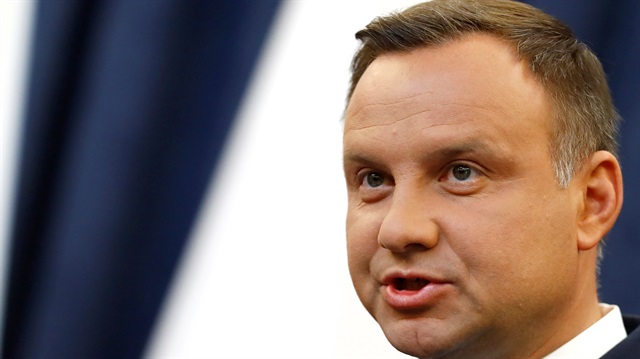
"MAJORITY IS STABLE"
PiS needs Polska Razem's nine seats to maintain its lower house majority, and the tweet prompted questions about a coalition break-up to PiS's deputy parliamentary speaker, Ryszard Terlecki.
"I don't see a risk of that, at least for now," Terlecki told reporters. "There are no reasons to hold an early parliamentary election. The majority is stable enough, so it will be maintained for these two years (to the end of its term)."
"There is no war at the top," he added.
Polska Razem then issued an official statement saying that, while it broadly agreed with Duda's view of the bills he vetoed, it had not considered voting against the government because "it is obvious that a division in the coalition on such important bills would have to lead to an early election".
The three main opposition parties, Civic Platform, Nowoczesna and Polskie Stronnictwo Ludowe, held a news conference to announce a joint effort to produce their own judicial reform plan.
Ryszard Petru, the head of Nowoczesna, said he expected more street protests after Duda issued his proposals.
"Let's remember that this was one battle," he said. "It may be that we're facing further battles in the autumn."
PiS under its founder and leading light Jaroslaw Kaczynski has already ridden out a number of setbacks without a significant loss of support in its core small-town voter base, notably when street protests and an opposition blockade forced it to abandon plans to tighten the abortion law and restrict media access to parliament.
However, recent surveys have shown the combined opposition drawing level with the PiS-led coalition.
A poll published on Tuesday in the Gazeta Wyborcza daily, conducted before Duda announced his vetoes, put the PiS-led coalition on 33 percent, with the centrist Civic Platform and Nowoczesna on 23 and 9 percent respectively.
Some analysts suggest that the approach of the next parliamentary and presidential elections, respectively two and three years away, is starting to erode the stability of the government.
Witold Sokala, a political scientist at Kielce University, said Duda's decision to challenge Kaczynski had chipped away at the PiS's stranglehold over Polish politics. "The monolith of power is breaking up," he told the state news agency PAP.














